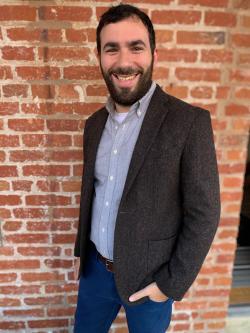Trace Bang on a Can’s expansion as it traipsed through developments and found new ways to grow the listenership for contemporary composition with Lecturer William Robin.
“The Bang on a Can Festival, the 8-year-old irreverent New York forum for new music, is invading the mainstream,” wrote Billboard in May 1995. The magazine was pointing out a major moment in the festival’s history: that season, what had begun as a quirky, do-it-yourself marathon of contemporary music in downtown New York was now playing a run of concerts at Lincoln Center and releasing an album on the major label Sony Classical.
Bang on a Can’s remarkable growth in the early 1990s—as it expanded with an in-house ensemble and collaborations with major classical music organizations, its budget grew by more than twentyfold––can be traced to the entrepreneurial ingenuity of its three founding composers. But it was also a result of significant structural shifts: a “marketplace turn” in American new music in the late twentieth century, in which institutions and musicians came to believe that the survival of contemporary composition depended on reaching a broad, non-specialist audience. A reversal of Cold War-era attitudes, the marketplace turn profoundly reshaped the institutional landscape for the American avant-garde: the granting organization.
Meet the Composer facilitated contact between composers and the public; government funders like the New York State Council on the Arts encouraged grantees to focus on audience outreach; presenters like Lincoln Center saw contemporary music as a means to attract new ticket buyers; and the record industry looked to new music as an opportunity to amass profits. In this talk, Will Robin will trace Bang on a Can’s expansion in this period, as it traipsed through these developments and found new ways to grow the listenership for contemporary composition.
Admission is free and open to the public.
____

William Robin is an associate professor of musicology at the University of Maryland’s School of Music. His research and writing untangle the complex cultural and institutional histories of contemporary classical music in the United States. His first book, Industry: Bang on a Can and New Music in the Marketplace (Oxford University Press, 2021), examines the new-music festival Bang on a Can and their participation in major shifts in the 1980s and 1990s as the American avant-garde pivoted towards the marketplace. His next project, in collaboration with Kerry O’Brien, is On Minimalism: Documenting a Musical Movement (University of California Press, forthcoming 2023), a revisionist history of musical minimalism told through the presentation and contextualization of more than a hundred primary sources. As a public musicologist, Robin contributes to The New York Times, hosts the podcast Sound Expertise, and tweets as @seatedovation.
Date & Time
No dates or times currently scheduled for this event.
